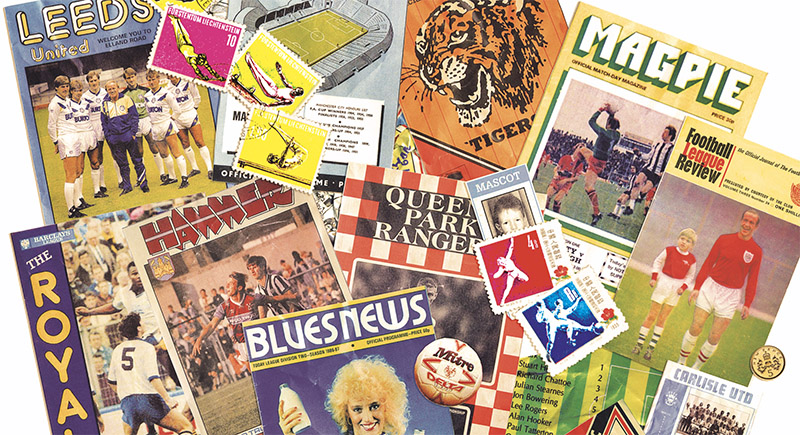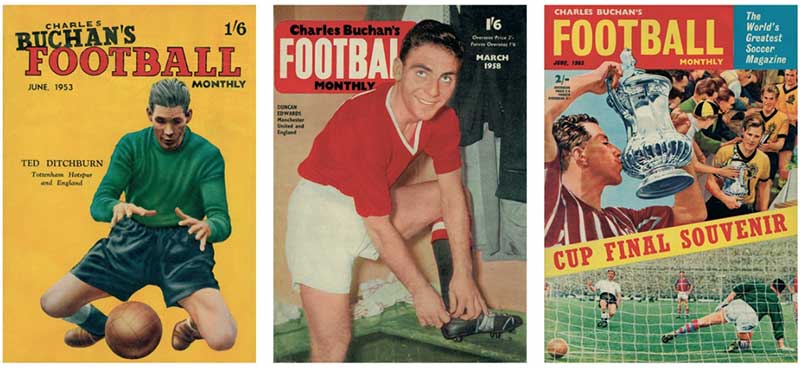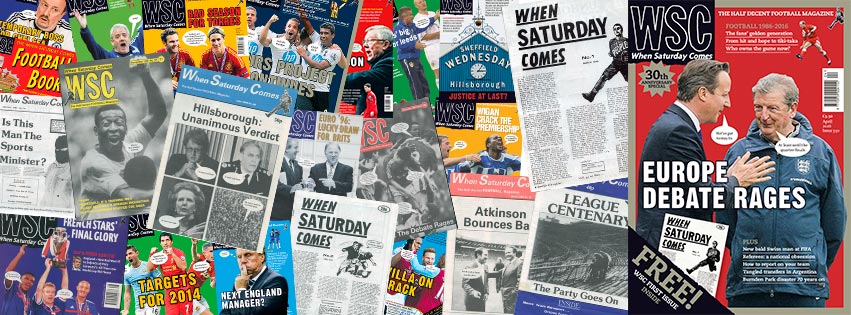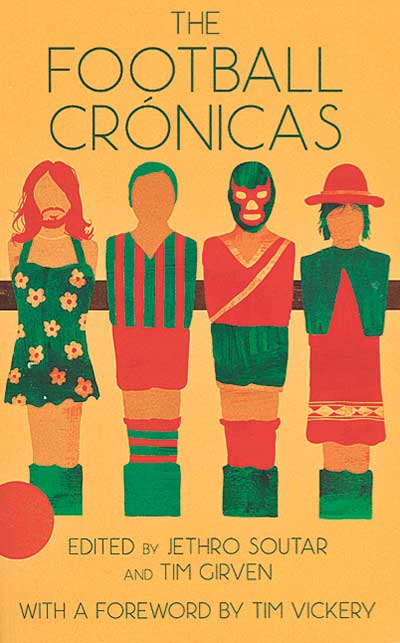
Search: ' magazines'
Stories

In WSC 237, November 2006, Simon Inglis traced the life of the first half-decent football magazine and the player and broadcaster who brought it into existence
Hanging around outside public buildings asking strangers to scribble on bits of paper can become an obsession, as John Hall explained in WSC 7

When Saturday Comes, Britain’s largest independent football magazine, has put its entire archive online. Launched to coincide with the magazine’s 350th issue – available to subscribers now and in shops from March 10 – and 30th birthday, the project with Exact Editions sees subscribers gain free access to every issue of the magazine. From the first, hand-stapled editions, WSC has covered a period of huge change in the national game from an alternative angle.
Founded in 1986 when football was an outcast sport whose followers were demonised by the government and media, WSC has been there through the Hillsborough disaster, the introduction of all-seat stadiums, the foundation of the Premier League, the influx of multi-billionaire owners, mass commercialisation and rising ticket prices, to provide an alternative voice for intelligent supporters in both a serious and humorous way. The new, fully searchable archive showcases how football has evolved over the last 30 turbulent years.
A product of the fanzine boom of the late 1980s, WSC itself has developed and, during the mid-1990s boom in football publishing, established a niche in the then crowded magazine market. WSC has become recognised as a source of informed comment on all aspects of British football, featuring on major current affairs programming and in newspapers in this country and on radio and television around Europe.
WSC has provided an early outlet for many writers who have gone on to establish themselves elsewhere, notably Harry Pearson, Barney Ronay and David Conn – all of whom will feature in the 350th issue. That special edition will also include a reprint of the first issue at no extra cost as a birthday gift to our readers.
Alongside the magazines, WSC has a book publishing back catalogue that includes pioneering histories of football in Spain (Morbo by Phil Ball), Germany (Tor! by Uli Hesse) and the US (Soccer In A Football World by David Wangerin). Most recently they produced The Man Behind The Goal, a collection of short stories by the esteemed football writer Brian Glanville. They also have an established web presence and have launched WSC Photography, an ever-growing collection of images of football culture, drawn from WSC photographers and their archives. WSC also runs an annual competition for amateur and aspiring writers.
Editor and co-founder Andy Lyons will be available for interviews, and we can also provide access to the archive and guidance on finding historic articles on any subject you require.
editorial@wsc.co.uk">editorial@wsc.co.uk
020 3735 7580
When Saturday Comes
E1 Business Centre
Studio 202
7 Whitechapel Road
London
E1 1DU
 edited by Jethro Soutar
and Tim Girven
edited by Jethro Soutar
and Tim Girven
Ragpicker Press, £10
Reviewed by Nick Dorrington
From WSC 335 January 2015
The Crónica is a Latin American literary form, somewhat akin to the output of the new journalism movement of the 1960s and 1970s, in which the author involves themselves, to some degree, in the story. Written from a bold and engaging first-person viewpoint, it is a form that is the subject of a number of dedicated magazines across Latin America.
It is through the medium of the Crónica that this collection explores the football and society of a region in which a team bus is shown more deference than an ambulance in traffic, where villagers gather on a hillside to get the best possible signal for the radio broadcast of a match and where entire cities can be brought to a halt by an important fixture. These entries are supplemented by a book extract in similar style and three short stories.
The standard varies a little from piece to piece but the overall quality of both the writing and translation is to be applauded. Authors from across South America, plus two from Mexico, have been included, writing on subjects as varied as a prison team in Argentina, a Latino immigrant league in New York and a team of transvestites in Colombia. The rare missteps occur when the focus is on well-known subjects such as Alcides Ghiggia or Romário.
One of the most interesting entries is by the Peruvian writer Marco Avilés. It tells the story of the women’s football team of a high Andean village where no Spanish is spoken and the comforts of modern society are not to be found. The women travel down to the nearest developed city to take on the local team in a match that Avilés bills as a battle of ojotas (rustic flip-flops) versus trainers; ancient tradition against globalisation.
The changing face of football is masterfully described in a wry short story about an elderly man denied access to a stadium due to his failure to produce a shop loyalty card. “Purchasing power is all that matters,” a steward tells him as the man fruitlessly describes the various triumphs and defeats he has witnessed in his many years in the stands.
The best pieces in the collection are those about people who for one reason or another stand on the margins of mainstream society. We sometimes forget that football, in its most basic form, can act as a unifier for communities, or provide a platform for those whose voice is rarely heard. This theme is beautifully summarised in the final entry, a short story by Vinicius Jatobá that provides a fictionalised account of the genesis of Brazilian football and the emergence of Leônidas da Silva in the docks of Rio de Janeiro.
Laced with local patois and references to the art, food and history of the region, the book is, at times, a challenging, even daunting read. Explanatory footnotes would have been a welcome addition. Yet it is still an enlightening and ultimately rewarding excursion into the football and culture of Latin America.